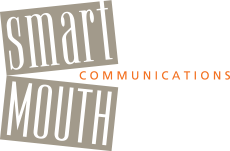 Recently I listened to NPR’s Doug Fabrizio of “Radio West” as he interviewed British linguist David Crystal about his new book, “The Gift of the Gab: How Eloquence Works.” It was a fascinating and validating piece on what it takes and means to be a persuasive and impactful speaker. He and I agree on many important points.
Recently I listened to NPR’s Doug Fabrizio of “Radio West” as he interviewed British linguist David Crystal about his new book, “The Gift of the Gab: How Eloquence Works.” It was a fascinating and validating piece on what it takes and means to be a persuasive and impactful speaker. He and I agree on many important points.
For starters, Crystal has an interesting theory that really everyone is eloquent. And I would have to agree there is a lot of truth to this. All of us have had impassioned personal conversations and convincing one-to-one conversations. However, we often assume this is not a skill transferable to the podium and to a larger audience. The larger an audience gets, the more nerve-wracking it feels to the speaker, but the reality is that the fundamental skills you use to be eloquent or persuasive when speaking one-to-one are the same for a larger audience.
Crystal notes that preparation and rehearsal are keys to eloquence. Very few people can step up on a stage unprepared and then be eloquent. Preparation not only helps you be more fluent, but it also boosts your confidence. Yet a lot of speakers are so full of dread that they avoid preparation (denial!) and then at the last minute wing it. In the end, though, this makes everything worse. It affects the speaker’s ability to genuinely project confidence as well as the ability to be truly connected to the audience – as the speaker will be more focused on trying to remember what he or she was supposed to say next. The only cautionary warning about preparation is that there is a fine line between being prepared and being over-prepared. Audiences recognize and dislike speakers who feel forced or fake. You have to prepare just enough to be fluent with your material and be natural.
Another good point that David Crystal brings up, and one that I always tell my clients, is that the most annoying thing for an audience is when a speaker does not keep to time. That is an instant speech killer. If you are scheduled to talk for 20 minutes, talk for 20 minutes, not 30 minutes and not even for 22. The longer your speech is, even if the time expectations have been set for the audience, the greater the chance you have of losing your audience. With long speeches or presentations, you have to build in moments that bring the attention of your audience back and make sure to add pauses and little breaks so the audience has time to process what you are saying. But no matter what, to go over your allotted time is just about the most audience-unfriendly thing you can do.
In the same vein, it is very easy to overload an audience even in a short speech or presentation. Often, speakers become excited about their material and offer too much or speak too quickly and thus the audience does not have time to understand or comprehend what they are saying. Even in the best of speeches, the audience won’t remember everything, but as David Crystal says, “in a good speech you remember fragments, in a bad speech you remember nothing.”
David Crystal must have been reading my mind, because we agree on another important fact: people can comprehend three points, but after that comprehension takes a nosedive. It is usually best to divide a speech into no more than three important points or messages if you want to be impactful. Otherwise, if you decide you cannot pare it down to, let’s say, less than six points, you are likely to end up with an audience that remembers nothing.
- New Agey Advice for Nervousness - November 3, 2022
- Your Passion Can Go a Long Way Toward Building Connection - October 10, 2022
- Keep stage fright a private matter while you’re speaking on a public stage! - August 11, 2022



